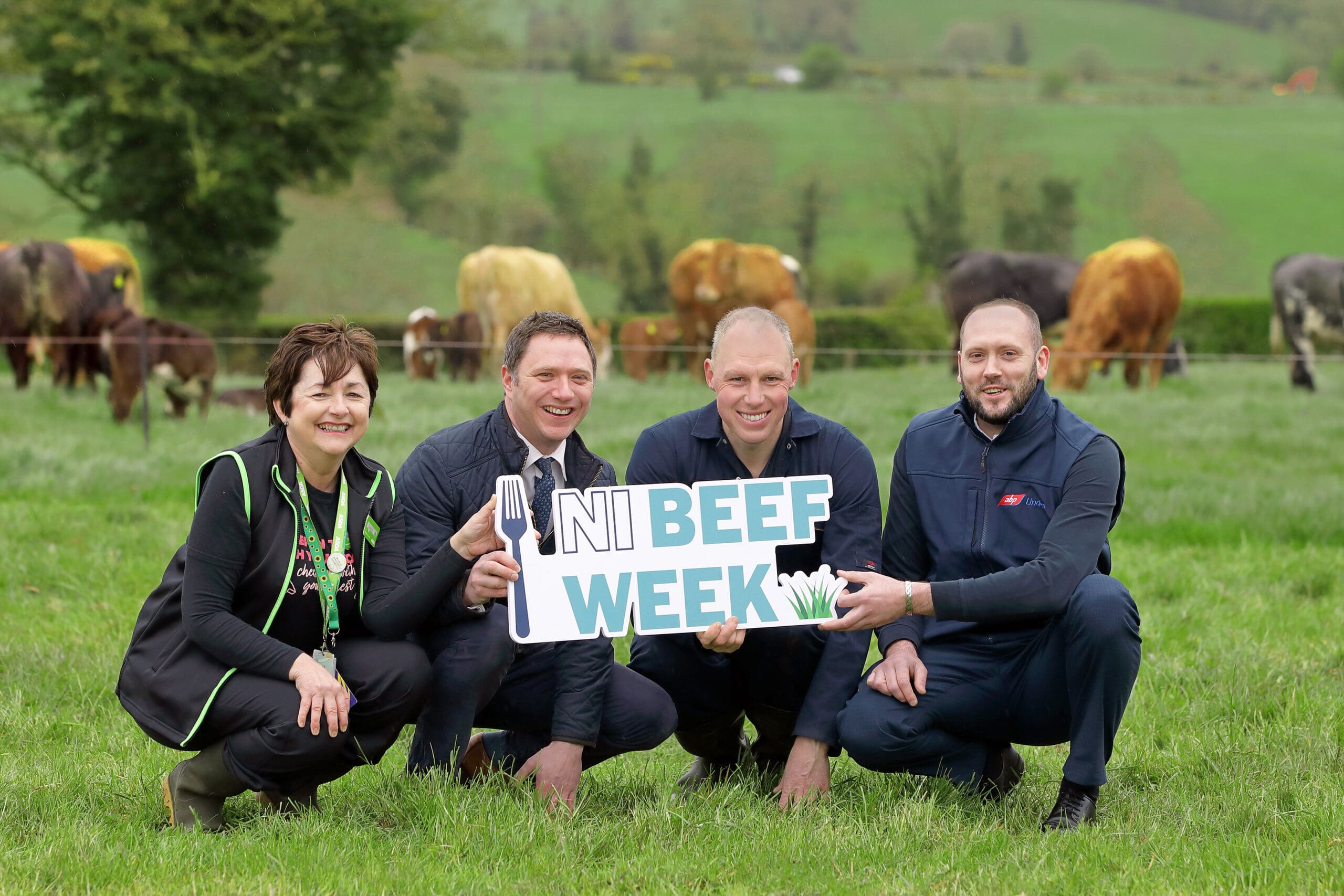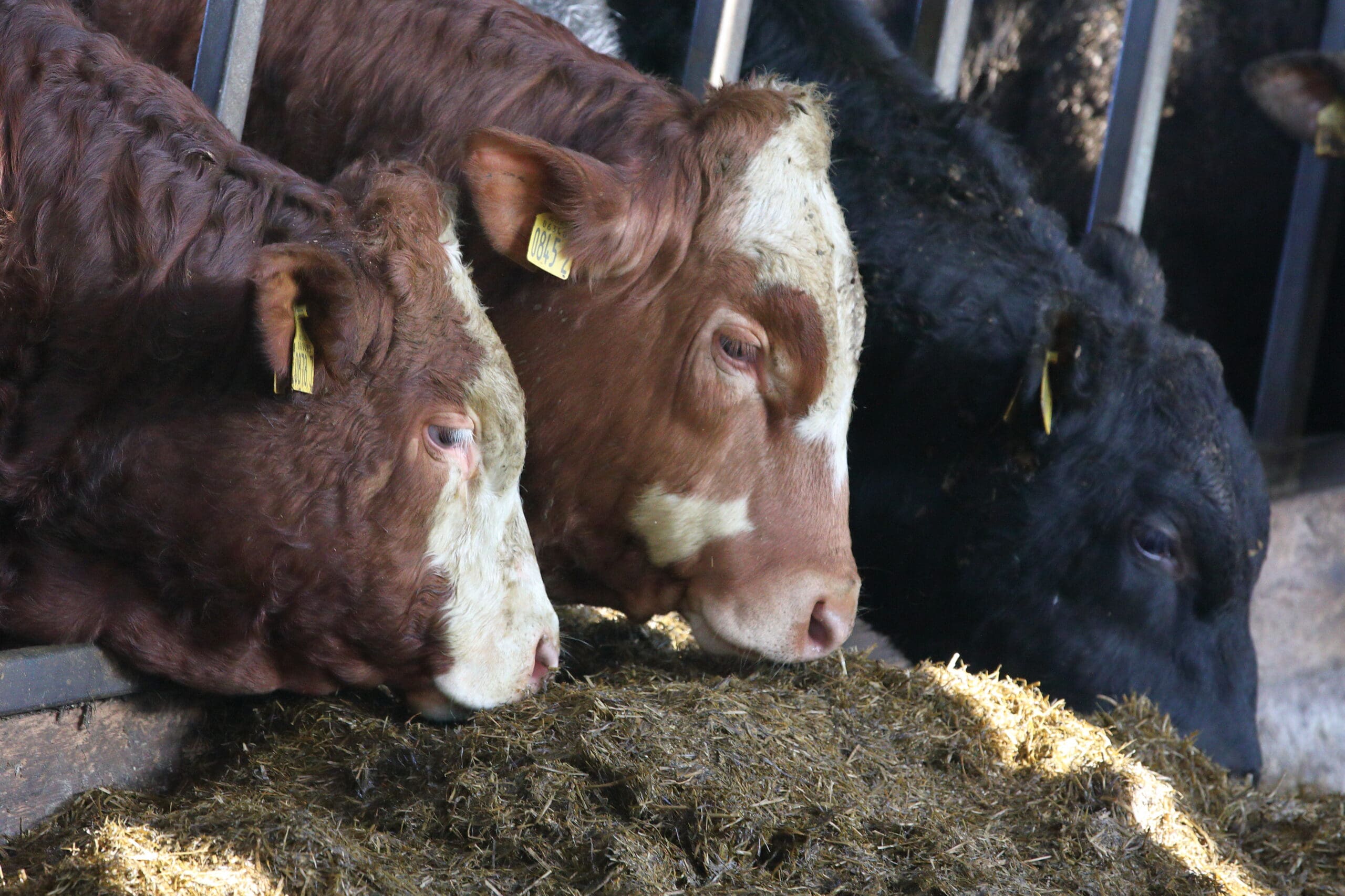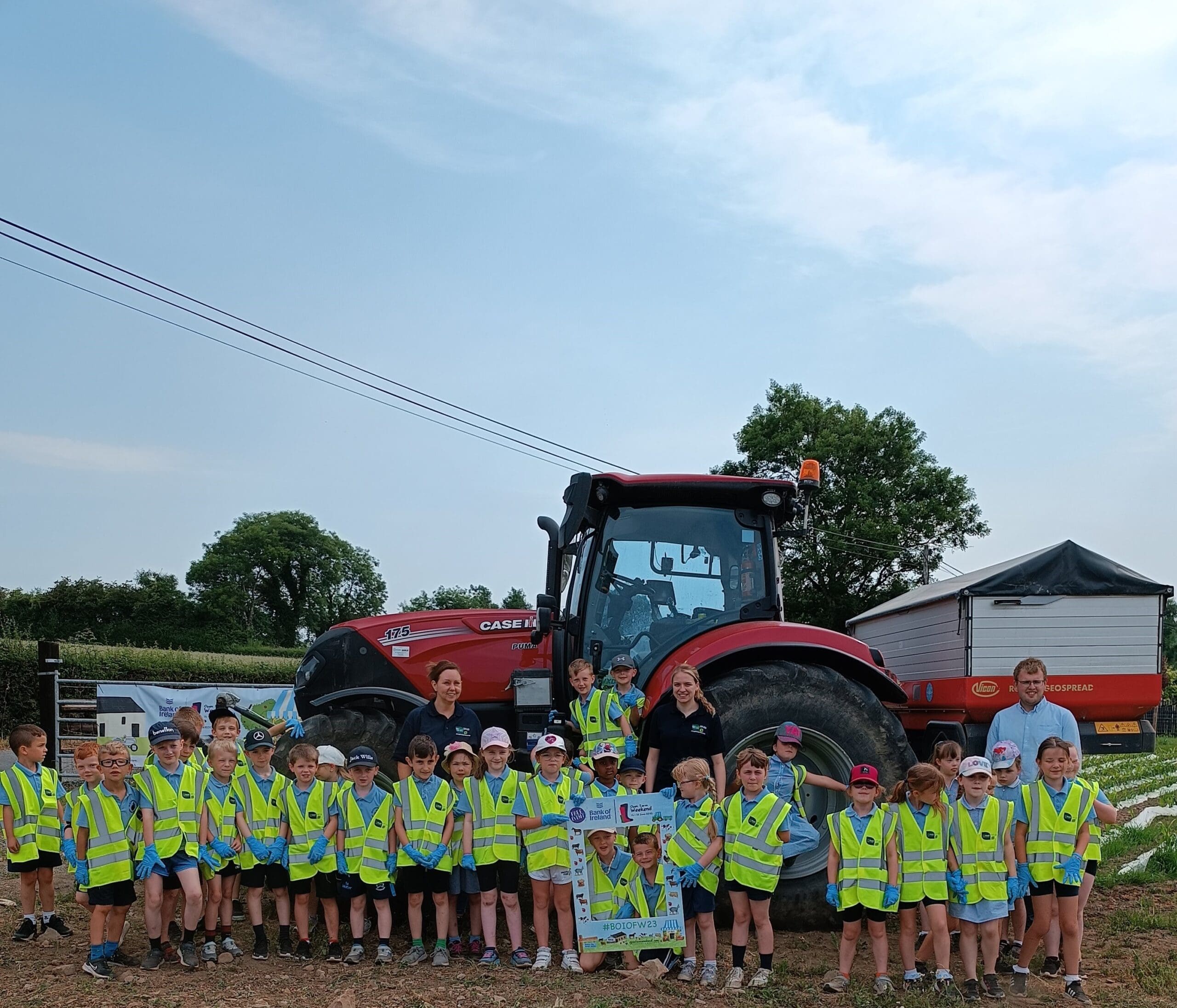
Commodity watch by policy officer Daryl McLaughlin.
Ulster Farmers’ Union (UFU) representatives John McLenaghan deputy president, Pat McKay beef and lamb chairman, Alastair Armstrong hill farming chair, and Daryl McLaughlin beef and lamb/hill farming policy officer met with their UK and Irish counterparts in London this week face to face for the first time in almost three years for an extraordinary meeting.
The group discussed a range of issues that are impacting the UK and Ireland’s cattle and sheep farmers and the wider supply chain, including:
- Increasing input costs of fuel, feed and fertiliser
- The Northern Ireland (NI) Protocol
- Changes to agriculture policy across the UK
- Land use and Net Zero
- Red Tractor and devolved assurance
- Fairness in supply chain and sheep classification and price reporting
- Growing red meat exports
The main focus of the discussion centred around the current market situation and the crippling increase in farm inputs which is without doubt the biggest and most immediate threat to the sector. Primary producer confidence is being eroded and livestock farmers remain nervous about the future. The UK government have published their National Food Strategy and it has now finally recognised the importance of the nation’s food security and places an obligation on government to measure our self-sufficiency.
Beef and lamb production across the UK and Ireland is one of the most sustainable in the world but government must do more to relieve the burden of regulation and cost on the industry. Livestock farmers need to be able to invest in their businesses and a supply chain that functions fairly and transparently, and that includes the UK fertiliser market. CF Fertiliser UK closed one of its fertiliser plants in England as a result of energy costs. Local UK supply will not be affected as a result of this and will lily lead to further supply and prices issues as the season progresses.
The group also discussed the NI protocol. The UFU has been urging the UK government and the EU to find meaningful and pragmatic solutions to resolve outstanding issues to the NI Protocol. The protocol is working well for the red meat sector, but there still remains outstanding issues that affect the sector such as live animal movements from Great Britain (GB) to NI, and animal medicines as GB is considered a third country. We have been urging government and the EU to find a pragmatic and mutually accepted solution. This is especially important as we face into the huge global uncertainties of food and energy supply.
The group discussed changes to agriculture policy and discussed the different approaches to agriculture policy reform highlighted significant differences between the UK nations and the Republic of Ireland as they will remain within the EU Common Agriculture Policy. Food production and farming with the environment need to work together, but livestock farmers need supported and the right policies to help us through this current crisis and set us on a track for a more sustainable future.
Land use change and net zero was also another key topic discussed. The competition for productive land and the risk of long-term land use change must not be ignored. The agriculture industry needs safeguards to ensure that nature-based projects work alongside domestic agriculture production and support biodiversity management, water quality and flood management. Food security must remain front and centre of Government and consumers.
In relation to net zero and carbon sequestering we need to ensure that we are measuring and accounting in a consistent way that also takes account of the role that grazing livestock play in maintaining biodiversity and sequestering carbon as this seems to be something of the forgotten.
Growing red meat exports is also something very important for the red meat sector and while the UK has an important domestic market, the home nations also have ambitions to grow red meat exports into new markets around the world and environmental sustainability is at the fore of this now going forward. You can read more on the NFU’s red meat export strategy by clicking here.




